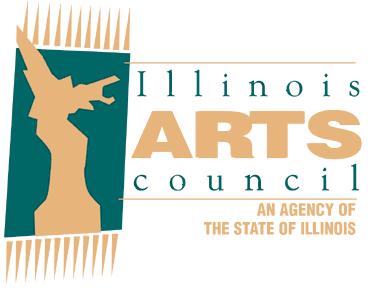PROGRAM NOTES
For the February 29, 2004 concert of the North Shore Choral Society
by Donald Draganski
Today’s concert serves up a menu to delight linguists, as we
present texts in English (translated from the Japanese), Hebrew, liturgical
Latin, and even a soupçon of Greek (in the "Kyrie”
of the Requiem) . Although the Book of Genesis (XI, 1) informs
us that in the beginning "the whole earth was of one language,
and of one speech,” later on we are told how the building of the
Tower of Babel gave rise to the welter of languages that since then
has made life so interesting and challenging. As Walt Whitman observes,
language arises "out of the work, needs, ties, joys, affections,
tastes, of long generations of humanity.”
****
Vincent Persichetti (1915-1987) was that rare example of the Teacher
and the Practitioner in admirable equipoise. At the age of five he enrolled
in Combs School of Music in Philadelphia, and by his twentieth year
he was already chairman of its Composition Department. He subsequently
held equivalent posts at the Philadelphia Conservatory, and at the Julliard
School. For many years he was also director of the music-publishing
firm of Elkan-Vogel and, to cap it all, he found time to write the definitive
textbook on twentieth century harmony. Despite his busy academic career,
he was still able to produce an impressive body of compositions that
number in excess of a hundred published works.
In 1964, Persichetti’s daughter presented him with a collection
of Haiku poems, A Net of Fireflies. translated into English
by Harold Stewart. These poems inspired him to compose Winter Cantata
(op. 97). Scored for women’s voices, the music evokes the work’s
Japanese origins, though Persichetti never quotes actual Japanese tunes.
The accompanying flute and marimba suggests (as one writer put it) "the
coolness and brittleness” of winter. This cantata received its
first performance in 1965 by the Emma Willar Choir in Troy, New York.
The NSCS last performed this work in February, 1989.
*****
Leonard Bernstein was born in 1918 in Lawrence, Massachusetts, to Jewish
immigrants from Russia. His life and works are sufficiently well-known
that we need only mention the many fields this musical polymath excelled
in: composing over an astonishing range of styles and idioms, from opera
and symphony to Broadway musicals; conducting, most notably holding
the directorship of the New York Philharmonic; lecturing; writing; producing
television shows; and on and on. He was also the first American-born
composer-conductor entirely taught and trained in America to establish
an international reputation. His all-too-early death in 1990 has deprived
us of one of the most energetic and dedicated musicians to have graced
our musical world.
His Chichester Psalms was commissioned for the 1963 Three
Choirs Festival, an annual event held in Chichester, England. The first
performance took place in New York in May of that year; the Chichester
performance occurred three months later.
The work, which employs the original Hebrew texts, begins with an exuberant
setting of Psalm 100 ("Make a joyful noise unto the Lord”).
The second movement, which features a boy soprano, draws on the words
of Psalm 23, interrupted abruptly with the lines "Why do the nations
rage?” from Psalm 2. The third movement continues with a peacefully
flowing setting of Psalm 131 which quotes material from the opening
movement, and it closes with a tranquil setting of the first verse of
Psalm 133. Today’s performance features a reduced instrumentation
consisting of organ, brass, harp and percussion. The NSCS last performed
this work in 1992.
*****
The British composer John Rutter was born in 1945 and did his advanced
studies at Clare College, Cambridge. He conducted the choir of his former
college until 1979 when he left to devote himself to composition. In
that same year he founded the Cambridge Singers, a group that under
Rutter’s direction has produced an impressive body of recordings.
Although Rutter has composed much music for the organ and for orchestra,
he is primarily known for his choral music, particularly service music
for the Anglican and Episcopal Churches. He has also edited the Oxford
series Carols for Choirs.
Like Brahms before him, Rutter has chosen not to adhere to an established
liturgical text. He has selected words for his Requiem from
a variety of sources, both liturgical and Biblical, resulting in a very
personal statement on death. Several passages ("Requiem,”
"Pie Jesu” and "Sanctus”) are drawn directly from
the Latin Mass for the Dead. The additional interpolated parts include
a setting of Psalm 130 ("Out of the deep”); passages of the
burial service from the Anglican Book of Common Prayer; and a setting
of Psalm 23 ("The Lord is my shepherd”) which was published
several years earlier as a separate anthem. The accompanying instrumental
comprises an interesting combination of flute, oboe, percussion, harp,
cello and organ. The Requiem was first performed in its entirety
on October 13, 1985, at Lovers’ Lane United Methodist Church,
in Dallas, Texas.
Copyright © 2004 by Donald Draganski


